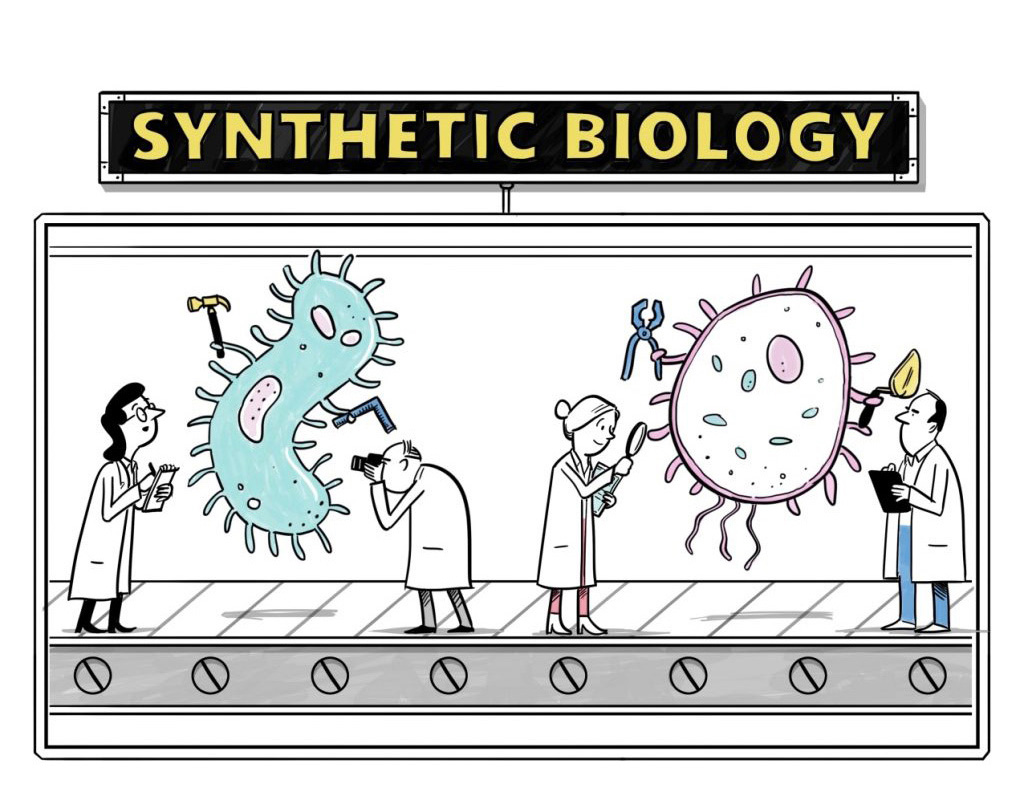Synthetic biology represents a radical paradigm shift in the biological sciences, intertwining principles of engineering, molecular biology, and systems theory to modify, design, and construct new biological entities. As we delve into what synthetic biology encompasses, it becomes evident that this field is not merely an extension of traditional genetic engineering; rather, it is a comprehensive discipline that seeks to reprogram life itself. By examining the fundamental principles, methodologies, applications, and ethical implications of synthetic biology, we can elucidate its profound impact on science and society.
1. Defining Synthetic Biology
Synthetic biology can be succinctly defined as the design and construction of new biological parts, devices, and systems as well as the re-design of existing, natural biological systems for useful purposes. This actively involves the integration of concepts from computer science, mathematics, and engineering. The result is a discipline that allows researchers to manipulate biological components with unprecedented precision.
At its core, synthetic biology embodies a systematic approach to biological research, akin to that of electrical engineering or software design. This cross-disciplinary synthesis seeks to create standardized biological components—often referred to as ‘bio-bricks’—that can be assembled into complex systems designed for specific functions.
2. Fundamental Principles
There are several key principles that underpin synthetic biology. First, the concept of modularity implies that biological components can be separated and recombined in novel ways, akin to interchangeable parts in machinery. Second, standardization allows for these biological components to be cataloged and reused, which enhances the efficiency of research. Third, abstraction enables researchers to focus on higher-level functions without needing to understand every microscopic detail of the system being designed.
These principles facilitate what is often termed the ‘bioengineering cycle’, which includes designing new systems via computational modeling, building these systems in the laboratory, testing their functionalities, and subsequently iterating on the design based on empirical results.
3. Methodologies In Synthetic Biology
The methodologies employed in synthetic biology encompass a wealth of techniques. One prominent method involves the use of CRISPR-Cas9 technology, a revolutionary tool that allows for precise editing of genetic material. Beyond CRISPR, other techniques include gene synthesis, pathway engineering, and directed evolution, each contributing to the growing toolbox available to synthetic biologists.
The use of computational tools to model biological systems also plays a crucial role in advancing synthetic biology. Systems biology approaches leverage vast datasets and algorithms to simulate genetic circuits, which serve as the blueprint for constructing desired biological functions. This computational modeling not only reduces the number of experimental trials required but also enhances the reliability of outcomes.
4. Applications of Synthetic Biology
The applications of synthetic biology are extraordinarily diverse and can be divided into several categories: healthcare, agriculture, biofuels, and environmental remediation. In healthcare, researchers are exploring ways to engineer microorganisms that can produce pharmaceuticals or use genetically modified cells to combat diseases such as cancer. For example, modified T-cells have shown promise in targeting specific cancer cells, a strategy that epitomizes the potential of synthetic biology to revolutionize medical treatments.
In the realm of agriculture, synthetic biology is paving the way for crops that can withstand extreme weather conditions or pests. Through the introduction of specific genes, scientists can enhance crop resilience, food security, and nutritional content. Such advancements are critical in the face of a rapidly changing climate and a burgeoning global population.
Furthermore, the production of biofuels from engineered organisms is an area of burgeoning interest. By optimizing microorganisms to convert plant biomass into energy more efficiently, synthetic biology could substantially mitigate our reliance on fossil fuels, advancing global sustainability efforts.
In terms of environmental remediation, engineered microbes can be designed to degrade pollutants or absorb heavy metals from contaminated water sources, representing a groundbreaking method to tackle environmental challenges.
5. Ethical Considerations
With great power, however, comes great responsibility. The rapid advancements in synthetic biology raise pressing ethical and safety concerns that require thoughtful deliberation. The potential for unintended consequences, such as the release of engineered organisms into natural ecosystems, poses a significant risk that must be assessed and monitored rigorously.
Moreover, the question of ownership and access to genetically modified organisms invites scrutiny, with implications for intellectual property rights and biopiracy. It is essential to establish robust governance frameworks that ensure equitable access to biotechnological advances while safeguarding biodiversity and human health.
Public perception also plays a pivotal role in the trajectory of synthetic biology. Engaging with communities and fostering transparency when it comes to research applications can help build trust, as skepticism often arises from a lack of understanding of the science involved.
6. The Future of Synthetic Biology
Looking forward, the potential for synthetic biology seems limitless. Advancements in artificial intelligence and machine learning are likely to augment the design and optimization processes within the field, leading to faster and more efficient outcomes. As collaboration between disciplines continues to deepen, synthetic biology is poised to become a cornerstone of 21st-century science, addressing critical issues ranging from health disparities to environmental sustainability.
In conclusion, synthetic biology represents a confluence of innovation that reshapes our approach to understanding and manipulating the biological world. With its vast array of applications, methodologies, and implications, this field is indeed catalyzing a renaissance in the life sciences, encouraging us to rethink what is possible in both nature and technology.








